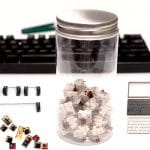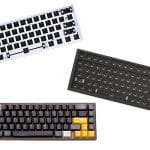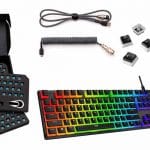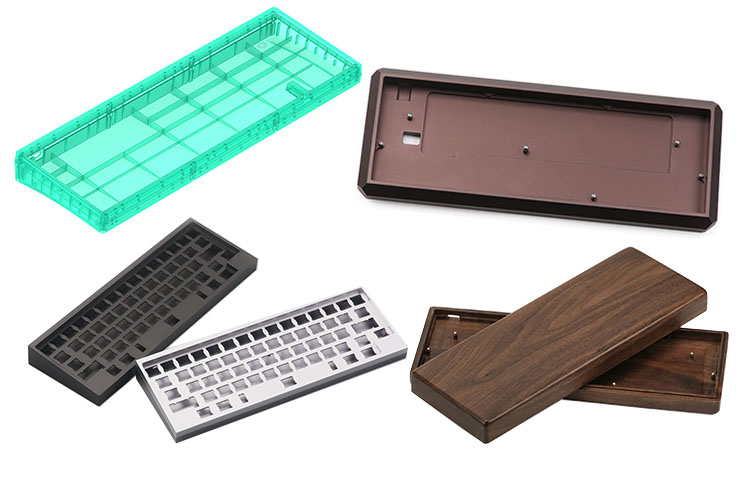
Mechanical keyboards are pretty similar to custom-built PCs in which you can swap out any part of it. And just like custom-built desktop PCs, the chassis of a mechanical keyboard plays a huge role. It not only affects how your keyboard looks but also how it performs.
Mechanical keyboards were traditionally offered in plastic cases. However, with the increasing popularity of custom keyboards, different keyboard cases can now also be found in the market. The common case materials include plastic, polycarbonate, aluminum, wood, and acrylic. Each of these has their own unique sound characteristics and feel.
In this article, we will be taking a look at the different mechanical keyboard case types. We’ll talk about their physical attributes, acoustics, and what type of build they suit the best. Keep on scrolling to learn more.
What are Keyboard Cases
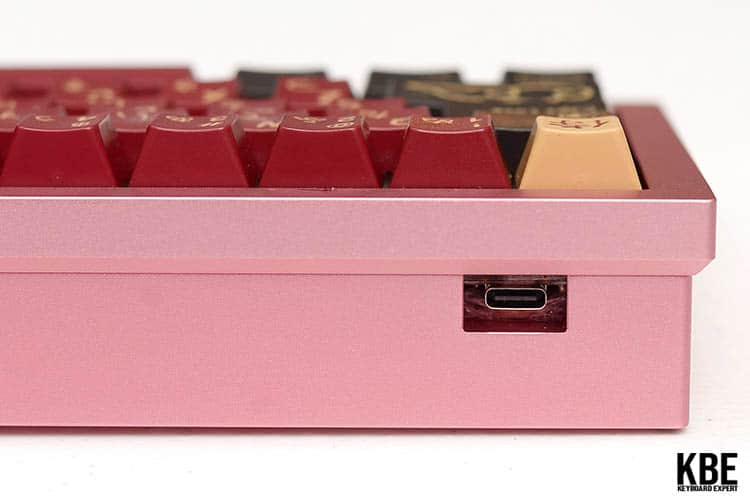
To put it simply, the keyboard case is similar to the chassis of your desktop PC. It serves as the outermost layer of your keyboard and holds all the parts together. It is the largest part of your keyboard and therefore represents the majority of the aesthetics of your keyboards.
Also, the size of your keyboard case will depend on the overall size of your keyboard. 60% keyboards will have a smaller case, while larger sizes such as 108 full-sized and TKL will naturally have a larger chassis.
Another thing to take note of is that there are different case materials such as plastic, polycarbonate, and aluminum. Each case material has their own unique characteristics and will affect your keyboard build in different ways. Below are some of the common case materials that are used in mechanical keyboards.
Different Keyboard Case Materials
Plastic Keyboard Cases
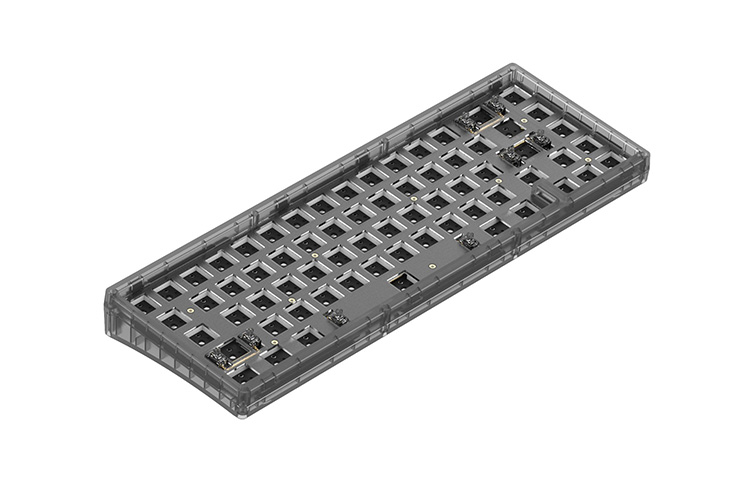
Plastic cases are commonly used for budget-priced keyboard builds as well as most prebuilt keyboards. They are usually made of ABS plastic and generally feel more flimsy compared to other case materials. They are also pretty lightweight, which further adds to the less premium feel.
However, not all plastic cases are made cheaply. Some keyboards that are mostly made of plastic, such as the premium premade keyboards from gaming brands, can still feel pretty premium. This is usually thanks to good quality control, other materials inside the case that add to heft, such as the plate, and a good finish.
Plastic cases usually do not have the best acoustics right out of the box. It is highly recommended, especially for custom keyboard builds, to modify these cases by adding case foam to reduce hollowness from the board. Most custom keyboard kits that use a plastic chassis, such as the KBDFans KBD67 Lite, already include dampening materials.
Overall, plastic cases are certainly usable and can be improved with enough patience from the end-user. But with that said, there are plenty of other higher-end case materials.
Polycarbonate (PC) Keyboard Cases
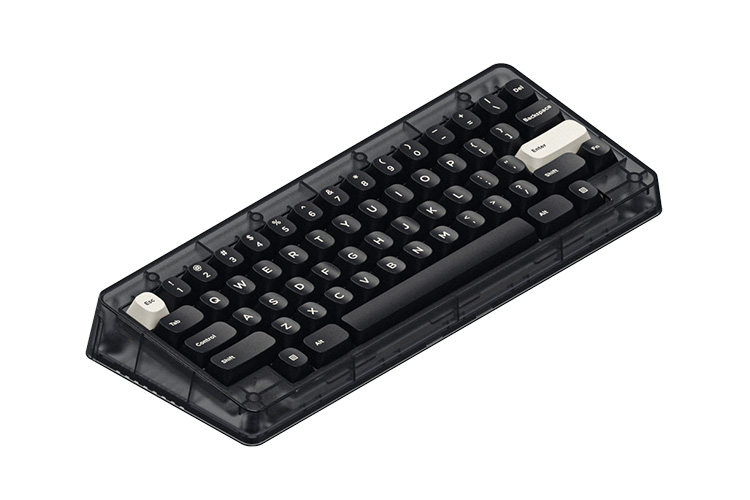
Polycarbonate is very similar to plastic. However, the quality of polycarbonate is significantly higher than plastic. Everything from the feel to the finish will be considerably more premium.
PC cases are, however, pretty light, just like plastic. In order to compensate for its lack of heft, most keyboard manufacturers add weights at the back to make the keyboard heavier.
Unlike plastic cases, PC cases are typically more expensive to manufacture. They are tougher than ABS plastic and are more impact-resistant. They are, however, more prone to scratches.
When it comes to variety, PC cases come in different designs and colors. Some are clear and frosted, while others have solid colors. Overall, PC cases take all the best qualities of plastic cases and make them even better.
Aluminum Keyboard Cases
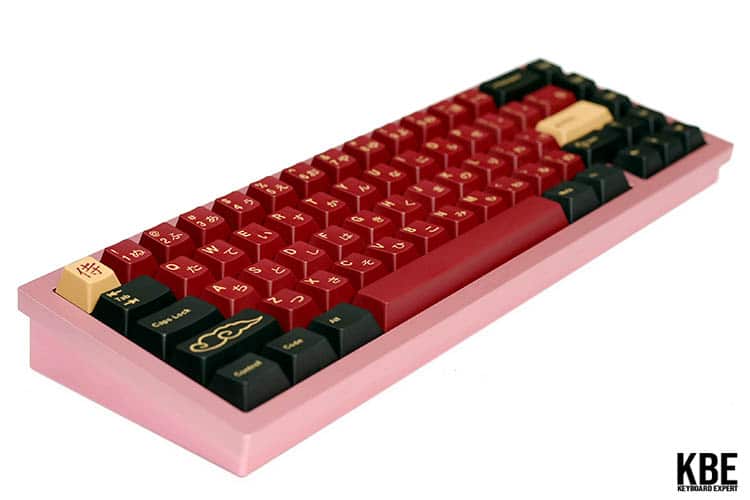
Aluminum is a more premium case material that is often used with higher-end custom keyboards and higher-end premade keyboards. They are considerably heftier than both PC and plastic cases which adds to their premium feel. Some brands also add brass weights to the back of aluminum cases to further increase the weight.
Unlike plastic cases, aluminum cases use a different kind of coating for their finish. Most aluminum cases go through a process known as anodizing. However, they are prone to scratches and easily show wear and tear.
The only downside with aluminum cases is that case dampening is almost always required. Most aluminum cases can sound tinny or hollow without foam, silicone, or other dampening materials.
Acrylic Keyboard Cases
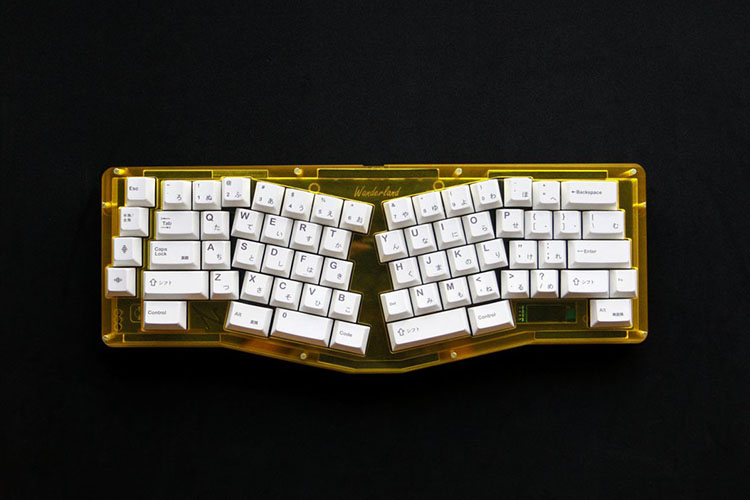
Acrylic cases are less commonly used compared to the case materials that we have discussed. The reason for this is because they have a very specific use case, and that is to diffuse RGB.
Due to the characteristics of acrylic, these cases tend to show off RGB better. If you are planning on adding RGB underglow to your keyboard, then acrylic cases are your best bet.
These cases generally come in two forms, stacked acrylic and frosted acrylic. Stacked acrylic is composed of different layers that are stacked on top of each other. They are commonly used for unorthodox layouts, such as the Arisu/Alice layout.
Frosted acrylic cases, on the other hand, are more common. They are usually used for builds that have underglow. Some examples are the Frosted Acrylic Tofu.
Wood Keyboard Case
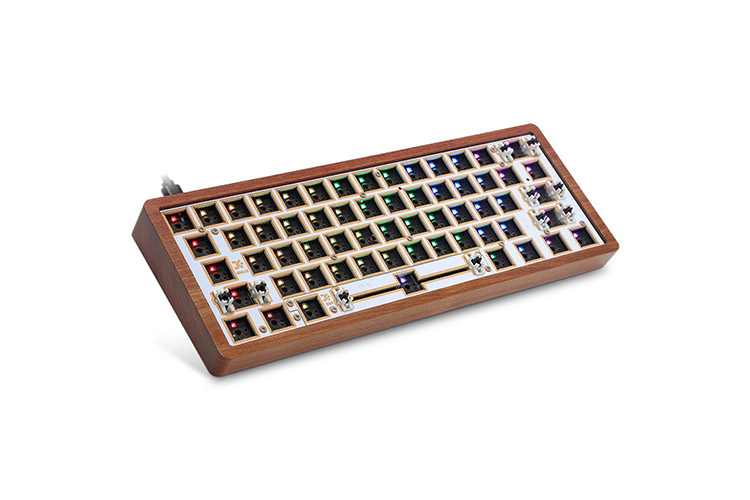
Wood is arguably the least commonly used material in today’s custom and pre-built keyboards. It was pretty popular in the past since it added variety to the plastic cases at the time. But since aluminum and PC came into the market, wood cases started becoming less common.
In today’s custom keyboard market, there are almost no vendors that sell wooden keyboard kits. However, you can still get them in some models, such as the GK61X and GK64X.
Also, wood can still be a great case material, especially if you want a unique piece in your collection. If you are knowledgeable enough, you can craft your own case using wood. You can also commission someone to custom-build a wooden case for your custom keyboard.
Can You Swap the Case Material of Your Keyboard?
Unfortunately, swapping out cases isn’t quite as simple as you might think. Most modern custom keyboards utilize different kinds of mounting styles such as top mount and gasket mount. This means that third-party cases will most likely not fit your keyboard, especially if they were not designed to be used by your PCB.
Of course, some PCBs such as the DZ60 are designed to fit different kinds of cases, such as the Tofu. However, once you explore the higher-end keyboard market, it will be less likely that your PCB will fit into these specialized cases.
Can You Purchase Separate Keyboard Cases?
As we have mentioned earlier, some keyboard vendors allow their keyboard kits to be upgradeable. The DZ60 PCB sold by KBDFans, for instance, is compatible with different cases. KBDFans sells different cases made of different materials that can fit the DZ60.
The KBD67 Lite kit that KBDFans also sells is now also upgradeable to an aluminum case. Again, not all keyboards will be upgradeable, but some can certainly fit in third-party cases.
Which Keyboard Case Material is the Best?
The best keyboard case material will highly depend on your budget and needs. If you are looking for a premium keyboard, then PC and aluminum are great options. However, if you are building a budget-priced build, then it might be better to stick with plastic cases. And if you want a unique build, then wood and acrylic cases are great options.
The best thing about the keyboard hobby is that you can tinker around with your keyboard and can swap out different materials that produce a different kind of feel or sound. It is highly encouraged for you to try out all the different case materials in the market to see what fits your use case the best.

The KBE team is dedicated to sharing our knowledge and creating useful resources about computer keyboards. This article was written as a team collaboration, combining our knowledge and years of experience using, building and modding keyboards. Meet the team here.
